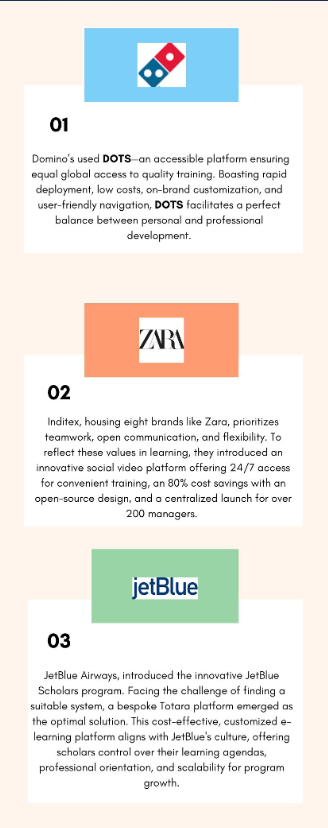Technology in HR was a game-changer in 2023. With an array of challenges surfacing on account of various events, from the back of office transition to increasing layoffs in startups, remarkable innovative tech solutions were implemented. The following list encapsulates the key ideas discussed throughout the year.
1.Looker Studio by Google
Looker Studio, earlier Google Data Studio, emerged as a powerhouse in the realm of data visualization and business intelligence. The platform enabled businesses to analyze, scrutinize and interpret data through robust features such as LookML, ensuring informed decision making. The platform also provided accessibility to datasets, such as Databases, MySQL, PostgreSQL and BigQuery amongst others, empowering data reporting from a variety of sources without the need for programming. Moreover, it can be accessed by anyone within the organization, fostering consistency and reusability across departments. This tool promoted the transformation of raw data into compelling narratives through visualization for companies.
2. AR and VR technologies
In the past year, Augmented Reality (AR) and Virtual Reality (VR) have grown beyond entertainment, finding valuable applications in business settings such as training, onboarding, remote collaboration, and talent acquisition. These immersive technologies enhance real-world experiences (AR) and provide simulated environments for secure and realistic employee training (VR). Leveraging VR can help the growing number of online job fairs enable global participation and reduce event costs. Moreover, VR is utilized to improve work environments through virtual tours of offices and facilities, fostering engagement and providing remote employees with a sense of connection. Major companies had experimented implementing VR simulations for employee training, covering scenarios like spill cleanup, shelf replenishment, and customer interactions, mitigating risks and enhancing skills in a controlled setting.
3.Disprz for Streamlined Training
Disprz, an advanced Learning Management System (LMS) platform, played a pivotal role in transforming training processes for businesses in 2023, especially in sectors like electric vehicles (EV). This specialized software simplified the administration, tracking, and delivery of tailored educational content, contributing to a more efficient and customized training experience.
Additionally, employee retention strategies focused on seamless onboarding, mentoring programs, continuous feedback, learning integration into workflow, competitive salary and benefits, leadership development, boosted employee engagement through gamification, and consistent employee recognition. These holistic approaches aimed to create a positive work environment, foster skill development, and enhance overall job satisfaction. It was used by leading global enterprises including Amazon, Indian Oil, Ather Energy, and Starbucks amongst others.
4.Flexible Learning Platforms
In 2023, the learning landscape underwent a significant shift, witnessing the prominence of flexible learning platforms that revolutionized the function of training and development. Fueled by technologies like AI, these platforms offered customizable and adaptable learning experiences, empowering users to access materials at their preferred pace. The focus on personalized learning paths for upskilling and reskilling became a cornerstone, providing employees tailored journeys for continuous development. This evolution in learning methodologies was crucial, especially in the corporate sector adapting to radical transformations post-COVID-19. The need for personalized learning recognizes individual differences and optimizes training efficiency for diverse employee preferences and learning styles. Refer to the attached picture for specific examples of platforms used by various companies.
5.Blockchain and Smart Contracts
Blockchain, serving as a decentralized and secure digital ledger technology, showcased its transformative power in 2023. The incorporation of smart contracts such as self-executing agreements encoded directly onto the blockchain ensured transparency and trust in various business functions. Blockchain specialized in functions like contract management, procurement, and financial transactions. This technological duo heralded a new era of efficiency and trust, particularly in areas where secure and transparent transactions were paramount.
Read Further:


Leave a Reply
You must be logged in to post a comment.